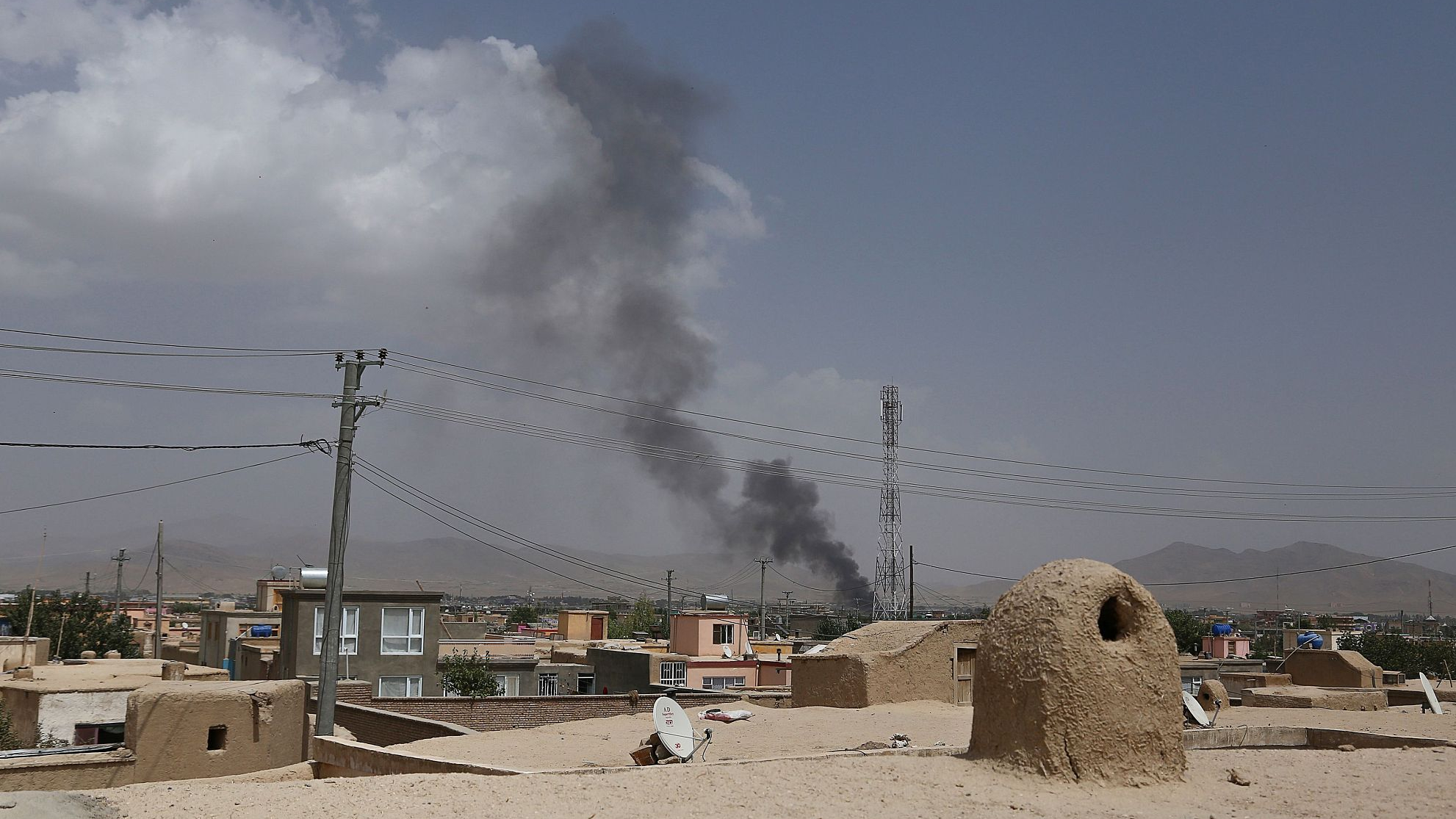
Editor's note: Alessandro Golombiewski Teixeira is a National Thousand Talent Distinguished Professor of Public Policy at the School of Public Policy and Management, Tsinghua University, and a professor of International Business at Schwarzman College in Tsinghua. He is a former special economic advisor to the president of Brazil and former minister of tourism, and minister of development, industry and foreign trade of Brazil. He was also president of the World Investment Association – WAIPA. The article reflects the author's views, not necessarily those of CGTN.
In April 2021, U.S. President Joe Biden announced his decision to withdraw American troops from Afghanistan arguing that "the ultimate objective of eliminating Taliban terrorism is already achieved."
Last week he strongly defended his position, giving August 31 as the last day to withdraw troops completely from Afghanistan and affirming that the Afghan "people have the right to decide on their own future, rather than sacrificing another generation of Americans in an unwinnable war."
This declaration has evoked massive dissent and dissatisfaction in Afghan society. The 20-year U.S. military presence has brought much chaos and vulnerability to a country that is still suffering from the implications of war, and it is not justifiable that U.S. troops leave without cleaning up their mess.
What exactly has the U.S. brought to Afghanistan? Is it fair to say that the U.S. has reached its goal of restoring the domestic situation in Afghanistan? The answers are quite obvious.
The U.S. invasion of Afghanistan followed the 9/11 terrorist attacks during the presidency of George W. Bush. Bush demanded the Taliban hand over Osama bin Laden, the leader of Islamist terrorist organization Al-Qaeda that was supposedly based in Afghan territory.
Historically, the rise of the Taliban is the product of the use and support of radical Islamist forces by the U.S. and Middle East countries that were against the Soviet Union in the war in Afghanistan, as well as the infiltration of extremist ideas and organizations, especially Al-Qaeda, into Afghanistan.
The U.S. did not achieve its initial goal to eradicate terrorism in Afghanistan or bring a stable local government to implement the so-called Western democracy. The statements can be supported by two arguments:
First, economically, although we know that the objective of the U.S. was never to build a prosperous Afghanistan economy or to protect Afghan lives, they are leaving the country in an outrageously chaotic situation. They have made the Afghan economy totally dependent on external aid, especially from their own economy.
In addition to foreign aid, the local economy is completely dependent on the international military presence. A good example is job opportunities. For nearly 20 years, the war industry has created all sorts of jobs vacancies. The Afghan businesses community has developed around the six U.S. military bases where they were contracted to supply equipment, fuel, food and all sorts of products. In the capital, the livelihoods of nearly 90 percent of Kabul's population of some five million were directly tied to the foreign military presence, according to a UN report.

Smoke rising into the air after Taliban militants launched an attack on the Afghan provincial capital of Ghazni, August 10, 2018. /VCG
Smoke rising into the air after Taliban militants launched an attack on the Afghan provincial capital of Ghazni, August 10, 2018. /VCG
International analysts have been warning that a fall in international aid, following the pullout of the military presence, will compound the already ominous economic conditions in Afghanistan where poverty and unemployment are soaring.
Any significant reduction in external aid will be catastrophic for the country, especially during the COVID-19 pandemic that has put even more pressure on health, education and other public programs that directly affect Afghan lives.
Afghans put their trust in the world's leading superpower and now will be abandoned.
Second, politically, the U.S. troops in Afghanistan have not been effective in stopping or eradicating the Taliban expansion or helping rebuild a stable and structured Afghanistan government and society that could diminish the power of the Taliban. On the contrary, the Taliban has expanded.
The withdrawal of U.S. troops will bring huge implications and facilitate the increasing expansion of the Taliban to urban areas. The U.S. pretends that the situation is under control with the fact that after nine rounds of discussions and negotiations, they signed a peace deal with the Taliban in February 2020. However, the Afghan government and the Taliban have not signed an agreement yet, and the chances of such a deal are low; the new U.S. administration sees the prolonged standoff as evidence that "there is no point in staying in Afghanistan."
What is clear looking at the current Afghan conjuncture is that the selfish withdrawal of U.S. troops without economic restructuring and a political plan represents a complete abandonment of the country. The faith of Afghanistan's people will be thrown to a dozen political parties and the Taliban fighting for power. This decision may not protect the next generation of Americans as there is a high probability the Taliban and the Afghan government increase attacks on each other and thus transform the country once again into a terrorist stronghold.
(If you want to contribute and have specific expertise, please contact us at opinions@cgtn.com.)

